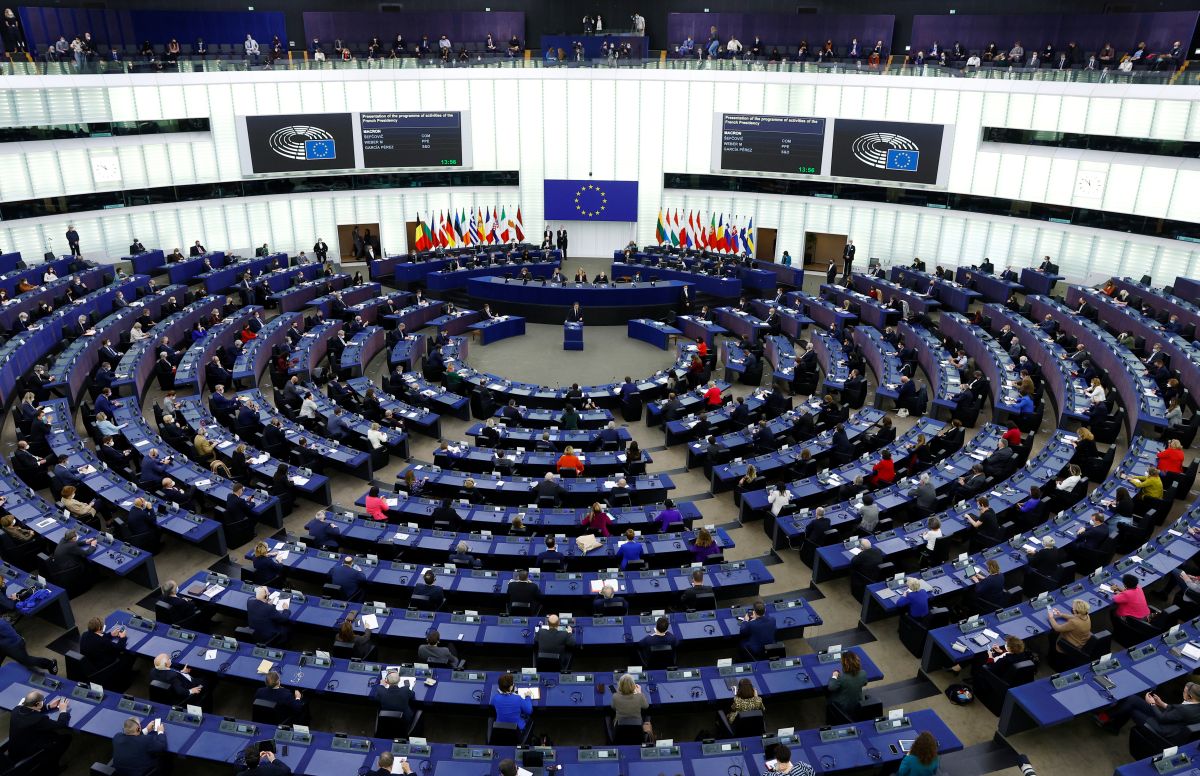Golden Passports and Visas: A Challenge for the EU
In March, the European Parliament (EP) once again opposed the practice of selling EU citizenship and residence rights in exchange for investment in Member States. It also targeted commercial naturalisation offered by third countries benefiting from a visa-free regime with the EU. In order to solve this issue, apart from the Commission’s (EC) legislative proposals, the cooperation of Member States that stop offering “golden” passports and visas, even if only in response to scandals or as part of sanctions such as those recently imposed on Russia and Belarus for their aggression against Ukraine, is indispensable.
 GONZALO FUENTES/Reuters/Forum
GONZALO FUENTES/Reuters/Forum
Golden Visas and Passports
The practice of purchasing visas (residence-by-investment, RBI) and passports (citizenship-by-investment, CBI) in exchange for, for example, establishing a company or investing in real estate, an investment fund, or bonds of a selected country is not unique to the EU. Its CBI/RBI are, however, particularly attractive. A passport issued by a Member State simultaneously grants EU citizenship, which enables the person to, among others, set up and run a business in other EU countries on the same terms as any other national. As a rule, a visa holder may travel within the Schengen area for 90 days and may acquire a passport.
Passports and visas are issued by EU countries based on national laws, which are shaped by EU law only with respect to visas. CBI are offered by Bulgaria (it plans to end the programme) and Malta, while RBI are offered by around half of EU countries. Spain, Latvia, Portugal, Greece, and Bulgaria are the most active RBI issuers.
Terms of Purchase
The value of the required investment to obtain a Bulgarian passport ranges from €512,000 to over €1 million (accelerated procedure); in Malta, from €888,000 euro; visas in Latvia, from €50,000; and in Spain, from €500,000. States promote their programmes by extending them to investor families, from spouses and children to all their dependents, such as parents (Hungary in 2016, before ending its programme) and adult children (Malta in 2017).
EU members justify their CBI and RBI schemes as a significant financial benefit to the state and a positive impact on job creation in return for a relatively small number of documents issued. Sales of about 132,000 passports and visas in 2011–2019 brought these states about €21.4 billion in revenue. However, the exact scale and particulars of the phenomenon is unknown as the countries generally do not provide information about the buyers. There are also divergences in definitions: for example, the Commission deems Austria’s naturalisation rules as a CBI programme, while the EP does not.
EU-Wide Problem
The CBI and RBI schemes of individual countries have consequences for the entire EU. The buyers are mainly Chinese (almost 50%), Russians (about 25% of the CBI beneficiaries of Malta and 40% of Bulgaria, including Igor Finogenov, the former director of the Eurasian Development Bank), and people from the Middle East. Among them, are individuals involved in organised crime, corruption, money laundering, terrorism, and tax evasion. The verification of applicants is sketchy and only in the case of RBI must the countries consult the Schengen Information System (e.g., Malta awarded citizenship to a Russian oligarch accused of money laundering in Finland).
Apart from threats to public order, CBI/RBI raise political issues. Passports issued to people linked to regimes hostile to the EU allow them to vote for candidates in both local and EP elections. Moreover, the application of these schemes is morally dubious—before Russia’s aggression against Ukraine, some Member States awarded RBI faster and more eagerly than accepting refugees or other migrants. For example, Hungary in 2013–2017 issued about 24,000 golden visas, while refusing relocation of about 1,300 asylum seekers.
EU Initiatives
The EU institutions have limited ability to react to CBI/RBI due to the EU’s lack of competences in the field of citizenship and no direct influence on the issuing of residence permits. The EP warned against CBI/RBI in resolutions (in 2014 on EU citizenship for sale; in 2020 on a comprehensive Union policy on preventing money laundering and terrorist financing) and in its 2018 and 2021 reports. When called upon by the EP, the Commission’s initiatives have been modest. In 2019, it announced that it would monitor the compliance of CBI/RBI schemes with EU law and obliged the Member States, among others, to comply with the long-term resident directives, better verification of applicants, and exchange of tax information.
In 2020, the EC initiated proceedings against Cyprus and Malta—but not Bulgaria—for breach of membership obligations (the requirements for sincere cooperation and protecting the integrity of EU citizenship). In response, Malta proposed more detailed screening of applicants and a one-year residency requirement. Cyprus introduced more radical changes only under the influence of public opinion; it suspended the acceptance of applications in November 2020 after an Al Jazeera report on corruption in granting CBI. Previously, EU pressure had made Cyprus only modify the scheme by refusing passports to persons on sanctions lists or who hold politically exposed positions, while at the same time extending the rights of investors’ families. Bulgaria, in turn, was motivated to withdraw from offering CBI by a lack of expected profits, not by the difficulties of joining the Schengen area.
In recent months, the EP has put forward specific ideas, including phasing out CBI by 2025, harmonisation of RBI at the EU level, possible regulation of CBI/RBI as a new category of EU own resources, ex-post control of their beneficiaries, and called on the EC to present legislative proposals by the end of its term of office.
In response to Russia’s aggression against Ukraine, the EC, some EU members (France, Germany, Italy), together with the UK, Canada, and the U.S., undertook to curb the practice of selling citizenship to Russians associated with the Putin regime. The EP called on EU states to deprive certain Russians and their families, especially people associated with persons and/or companies under sanctions, of golden passports. Malta suspended its CBI/RBI schemes for Russians and Belarusians, though not without hesitation. It initially argued that the beneficiaries and applicants were not on the EU sanctions list, but ultimately justified the suspension by the inability to properly verify applicants due to the war. Issuing RBI to citizens of Russia and Belarus has been suspended, among others, by Latvia, Greece, and Portugal; however, it will be effective only when other EU countries follow suit.
CBI/RBI of Third Countries
The EU visa-free regimes for third countries increases the value of their passports and encourages them to establish or extend their own CBI schemes (e.g., Antigua and Barbuda, Dominica, Grenada). Candidate countries also expect increased interest in their passports and visas in the event of accession to the EU and the Schengen area; CBI are issued, for example, by Montenegro and North Macedonia.
Although the Commission initially made only a general commitment to monitoring third-country CBI/RBI schemes, the EP called on it to force candidate and visa-free countries to abandon their CBI schemes and align their RBI programmes to EU standards. The EC warned Montenegro of a potential obstacle in joining the EU due to its CBI programme, and on 3 March the Council, at the request of the EC, partially suspended the visa-free regime with Vanuatu. To increase the effectiveness of combating CBI/RBI and to tighten the sanctions system, however, similar steps should be taken by the EU with respect to all third countries.
Conclusions
The standard of living and freedoms of the EU internal market attract foreigners to settle in the Union, and the expected profits encourage Member States and third countries to facilitate this on a commercial basis. The issuing of CBI and RBI shows the divergence in the priorities of EU institutions (public order) and some of Member States (investments).
Until now, the EP has been most actively involved in finding a solution to the problem. The Commission acted in a reactive and selective manner against countries where the problem of CBI/RBI was particularly publicised. Its reluctance may be explained by its lack of competences in the field of citizenship, but also because settlement and security remain in the sphere of sovereignty fiercely controlled and defended by EU members. Hence, it is easier for the EU to address the issue of CBI/RBI of third countries, for example, by suspending agreements on a visa-free regime, because it is less controversial from a legal perspective. However, it can be expected that the prominence of this problem in light of the new and extended sanctions on Russia and Belarus for their aggression against Ukraine will provide an impulse for the EU and its members to take faster and more decisive actions internally.
It is in the interest of Poland, which does not derive profits from CBI/RBI—but which is exposed to the negative effects of such schemes offered by other EU members—to support the efforts of the European Parliament and Commission to solve this problem at the EU level.


